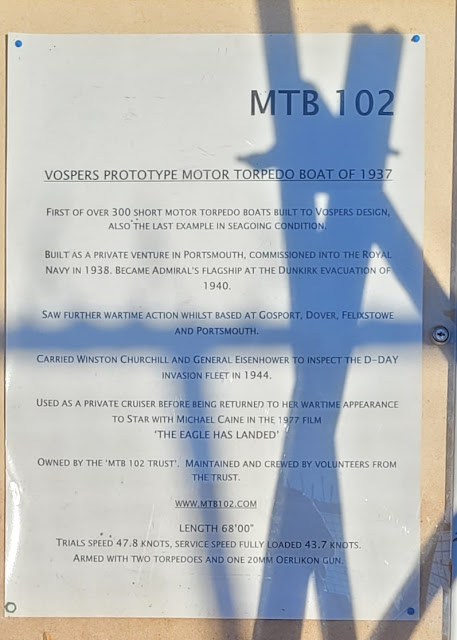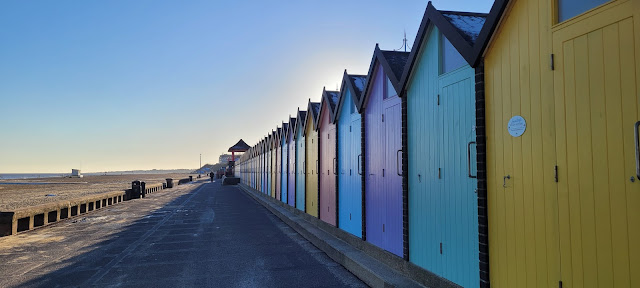19th January:
Another cold crisp start and possibly the last for a while
so I wrapped up and pottered down to Oulton Broad for a look round. The water
level had obviously been very high – perhaps as much as three feet up on its
current level and had certainly escaped the edges with sheets if ice stranded
up fencelines and sticking out of walls.
The whole of the Dead End was frozen and a hoard of regular
gulls, Mallard and a couple of Gadwall was resting up while several Egyptian
Geese were feeding on grain with the Feral Pigeons and Mallards by the quay.
On the other side the tide was very low and Redshanks, Turnstones and Oystercatchers were feeding quickly amongst the seaweedy rocks and Little Grebes bobbed up briefly before heading under once again. I followed the path down through the tunnel (still no hibernating moths) and up to the next point where I could view the marina and promptly found the 1st winter Great Northern Diver cruising alongside. Like so many of this species, it has a huge forehead bump. After gently submerging a couple of times I lost it back amongst the boats.
Two Carrion Crows were poking along the foreshore and I
watched them turning over the seaweed and picking up Sandhoppers as well as
stabbing at Barnacles on the rocks. Such
intelligent and resourceful birds.
 |
| Carrion Crow |
The view down the rest of Lake Lothing from the old railway
bridge gave me 12 Shoveler and several Little Grebes and nine Cormorant and a
Shag were actively fishing back and forth and seemed to be catching fair sized
prey. Leathe’s Ham was almost completely
frozen with just a single puddle in the middle on which three forlorn looking
Little Grebes could be seen – not long till the thaw. Gulls were across the ice but the only duck
were two pair of Pintail.
Down below the House Sparrows were investigating the Gorse and were actively eating the flowers although they always started by putting the bill inside first so as not to lose the best bit!
 |
| House Sparrows |
I retraced my steps and spied a single Wasp Spider egg case
in the grass along with at least a dozen cigar galls of Lipara lucens on the
very stunted Phragmites. A single
Fieldfare chacked and three Greenfinches glowed in the tree tops.
 |
| Alexanders flowering - hopefully I have removed the bulk of it from my new garden |
 |
| Wasp Spider egg case |
 |
| Lipara lucens |
I stopped by the last open boat warehouse where a large
vessel the Torpedo vessel MTB 102 was under renovation. A board had been posted at the front with
some of its amazing WWII and subsequent history. The cap inside let me take a couple of
pictures and I am sure he would have shown me around if I had asked.
 |
| Calliphora vicina |
It was still bitterly cold on the last stretch back to the car
with icicles dangling off windowsills but I did find Phyllonorycter leucographella
on a front garden Pyracantha – my first in a while.
 |
| Phyllonorycter leucographella |
 |
| Gleaming pigeons |
Lunch and then down to Kirkley where Andrea had an eye appointment
so I took myself off along the freezing prom.
The sea was deathly quiet so I had fun with the inquisitive Turnstones
before retreating to the car.
 |
| The beach was crowded |
 |
| Herring Gulls |
 |
| Turnstone |
With clear skies still prevailing there was time for one
last excursion and after some house and people swapping, Antony and I headed
back inland to Worlingham for another attempt at the Short-eared Owls.
It was glorious down there and even the breeze let up and
the view was illuminated by the last of the sun during and after sunset. We did
very well with two Short-eared and a Barn Owl occasionally quartering the rank
damp meadow with three Kestrels hovering up above.
 |
| Kestrel - Antony Wren |
Chinese Water Deer and Muntjac dotted the view on both sides
and Marsh Harrier and Buzzards were both still active. A Great White Egret
dropped into the side ditch and there were several Little Egrets and Grey Herons
too and unlike on Tuesday we actually saw the Teal that we could hear this
time!
At least two Green Sandpipers were moving back and forth
between the side ditch and I think that it was one of the few areas that was
unfrozen, their rumps glowing in the lowering light while three Snipe and Jack
Snipe were also seen moving to night-time feeding areas. There was even a mini Starling
murmuration that did a loop and then headed back towards the River to roost
while Redwings and Fieldfares headed off to their own retreats. A Kingfisher even energetically called in the
near dark from a side channel as we ambled back.
I was very confident that we should also get Woodcock
leaving the Alder carr for the night but we had to wait till we were nearly
back at the car and there was just the glimmer of cream, peach and turquoise in
the sky to pick up at least seven of these barrel chested lovelies twisting
overhead. I wonder how many came out of
the woods and copses that stretch for miles either way towards Carton Colville and Beccles?
20th January:
After spending the first part of the morning sorting out a
faulty new tyre, we headed up into the Broads for a drive before the weather
turns tomorrow. Scores of Pinkfeet, Lapwing and Golden Plover
were seen from the Acle Straight along with three Marsh Harriers and a stately
Great White Egret.
It was still incredibly cold and the increasing wind did not help. I started near Thurne to look for Cranes but had no joy although the view from further down the lane over the marshes out the view from St Benet’s Abbey into context as I could see it in the distance. From here it was lunch at Potter Heigham and then on a Swan hunt in Hickling where a mixed herd of Whoopers and Bewick’s were resting up around a huge puddle in the corner or a ploughed field. Most were Whoopers with a nice huddle of Bewick’s tucked off to one side. Judging size was not an issue and the latter looked very dinky in comparison.
 |
| A couple of Bewick's to the left of the Whoopers |
We did
not linger long as the wind was blowing straight in and so looped around
through the village and towards the coast passing three Cattle Egrets on the
way (as you do).
 |
| Cattle Egret |
I climbed up onto the dune at Waxham Barns and once again
failed to find Cranes but there were literally thousands of Pinkfeet out on the
field filling the air with a cacophony of calls where the whole mass were spooked
and sent of a slow spiral of the area before densely forming a super flock in
just one field.
 |
| Pinkfeet Haze |
Marsh Harriers and Buzzards were constantly on view and chance glance below me revealed the grey ghost of full adult male Hen Harrier heading determinedly south. It banked and dropped over the next field and came up with a small bird. It flew a short way and sat on the top of the beet and contemplated its catch before heading off once more to a safer spot to eat. It has been a long time since I saw a male Hen Harrier close enough to see the yellow of its eyes and dangling legs. A magical encounter dressed in grey, lavender, black and white.
The cold soon pushed me back to the car and many more Geese
were seen on the drive south down the coast and ended with a female Hen Harrier
crossing the road at Martham! I did not fancy and cold blowy look at Filby and
so headed for home with a cursory look at Ness Point at the Turnstones and
complete lack of Purple Sandpipers.
 |
| Turnstones |


































Love the Hen Harrier drawing Howard...
ReplyDelete